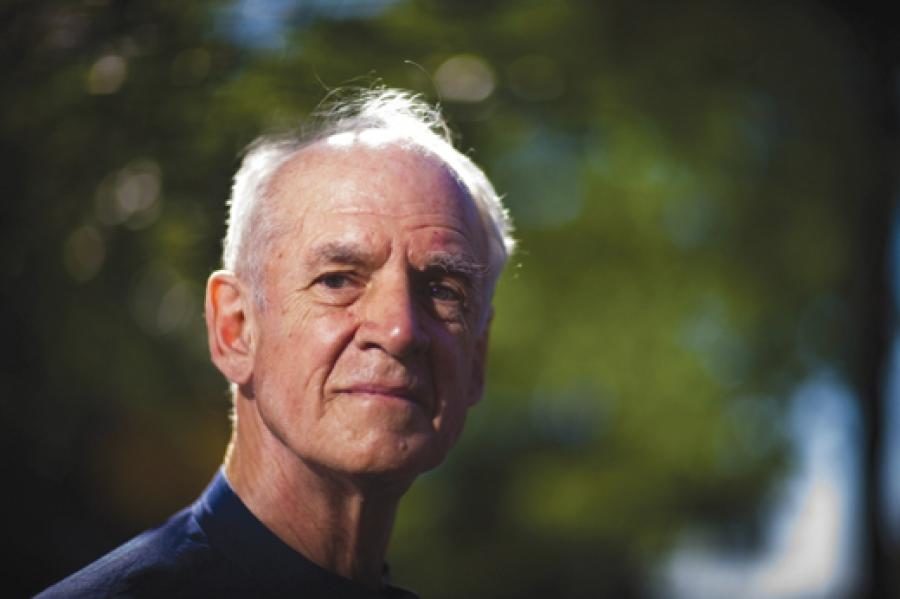Q In 2007 and ’08, you and Gérard Bouchard co-chaired a Quebec commission on reasonable accommodations for religious and cultural minorities. Dialogue is how we create solidarity with each other in a multicultural society. Where do you see constructive dialogue happening today in Quebec and in Canada?”
A Looking at what has happened after the commission, I find that really fruitful dialogue is occurring in some schools in Montreal, where there are people from all different backgrounds. People end up having friends that are Muslim or Sikh, etc., just in the course of normal living. They feel they are human beings and can relate to each other.
There are other cases where people work together and get to talk. I think a society that has a high proportion of this kind of side-by-side living going on is a society that is largely immune to the mobilization of hate or distrust. Because the people who [live and work together] just can’t see their friends as dangerous persons.
Q How can we encourage more everyday interactions like this between people of different religions and cultures?
A We made certain recommendations in the commission report. There are plans where schools go and visit schools in other parts of the province and vice versa, because all this mixing occurs mainly in Montreal. You can do small steps in the right direction that just might spark something. But we can’t pass a law and say, “Get out and find a friend unlike yourself!” We have to do this bit by bit, and society can change.
Q Would you recommend that other provincial and territorial governments replace religious education in public schools with mandatory courses in ethics and religious culture, as Quebec has done? Are there any signs that this has helped build tolerance?
A I have great hopes for this course, but we are just at the very beginning. We’ve had it for a couple of years, so there isn’t a lot of formal evidence. And it has to be well taught.
But it’s another way of trying to fight against the growth of these absurd stereotypes that can easily circulate in society and that stand in the way of our living together. . . . For instance, if you learn something about Islam, the diversity is just incredible. And if somebody then said to you, “All Muslims are the same,” you would say otherwise. This kind of measure is essential.
Q Can you elaborate?
A The image that I’ve often used is the image of the firebreak. When a prairie fire breaks out and somebody builds a ditch, the fire can’t jump over. Any friendship across these differences is a kind of mini-firebreak. They’re as irrational as prairie fires, these kinds of mobilizations [of hate]. We have to find a way of creating firebreaks.
It’s possible to teach with deep respect things that you don’t yourself believe in. When I was an undergraduate at McGill, there was a guy called William Cantwell Smith who was my teacher. He blew my mind. I was studying honours history, back in 1949. I had to take an optional course, and I took his course in comparative religions. No rhetoric — he wore a gown and walked up and down, and he was just extraordinary, just inspiring.
A United Church minister. He had this fantastic understanding of Islam, particularly. He managed to make it live for us.
Q Interfaith dialogue can be challenging. In Christian-Jewish dialogue, even if people have known each other for years and are able to talk about many things, when you get to the difficult topics, such as the politics in Israel and the West Bank settlements, dialogue is very hard.
A Often people don’t say what they really think about the other. [We have] what I call pacifying dialogues to convince each other that we aren’t total enemies of the other, but they aren’t the kind of things that are enriching or appealing or create deeper friendships. You have to be able to say, “I find this belief of yours very perplexing,” or, “I think this is a questionable moral position that you guys are taking. I don’t want to score points against you. I really want to understand.”
What makes that possible is when you’re talking unofficially as friends. I go back to these cases in schools. Kids who are in school together from diverse backgrounds can’t diabolize each other, can’t see their friends in that light. This is because their friendship evolves in a way where nobody is a representative of their group.
What is bedevilling Christian-Jewish dialogue today is the fact that many Jewish organizations have slipped into being apologists for the Israeli government as it now exists, and that makes it impossible to talk frankly about the whole thing. This is regrettable. It really is a mystery to me why it happened. The majority of American and Canadian Jews are rather open, but somehow their organizations manage to take this strong, apologetic stance on behalf of the Likud government, which I think is doing terrible things for the future of Israel and Israelis. That kind of thing will get you stuck, because when anybody is carrying the can for the official line, then it’s very hard to talk.
Q You’re a practising Catholic. How do you talk to people who are extremely critical of the church?
A As a Catholic, I couldn’t talk to people if I felt I had to defend the pope all the time, and I criticize him probably more than [non-Catholics] do. We couldn’t have this kind of dialogue.
The really fruitful dialogues, the ones that make these firebreaks, are the ones where nobody is carrying the can officially for any position. “Here, I’m a human being; I’m a Catholic. It’s my faith, and if you want to know why, we’ll talk about it.” That’s the kind of thing that works.
We are missing opportunities, humanly speaking, in our society, by people being walled off because they have so many suspicions. It’s tremendously rewarding for atheists and Christians to sit down and talk. If you had an attitude like [hardline atheist Richard] Dawkins and so on, there’s no possible discussion. There’s a corresponding attitude among Christians [toward atheists]: “You can’t be a moral person if you think that way.” There can’t be anything like that. We are missing tremendous spiritual enrichment. In my own life, I’ve had these relationships with people who were totally different from me.
Q A lot of people nowadays say they are not religious but spiritual. Do you think this is a cause for optimism or despair?
A It’s neither. There are people who are suspicious and put off by official churches and official creeds. They feel there has been a lot of abuse around that; they don’t know what to think. But they feel a kind of spiritual urge they want to explore. So, that’s great.
Everyone has to start where they are on the spiritual path. As a Catholic, I think the sacramental life of the church is terribly important, and therefore it wouldn’t satisfy me to get totally out of the organization. But I understand why all these people feel that way, when they’ve had terribly bad experiences in church. And so let them pursue that path and see where it takes them.
This interview first appeared in The Observer’s March 2013 issue with the title “Interview with Charles Taylor.”


Comments